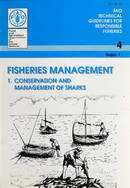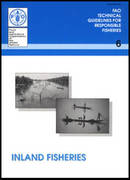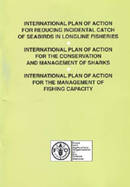出版物
The IPOA-IUU is a voluntary instrument that applies to all States and entities and to all fishers. Following the IPOA's introduction, the nature and scope of IUU fishing is addressed. This is followed by the IPOA's objective and principles and the implementation of measures to prevent, deter and eliminate IUU fishing. These measures focus on all State responsibilities, flag State responsibilities, coastal State measures, port State measures, internationally agreed market-related measures, research and regional fisheries management organizations....
These Guidelines have been produced to support implementation of the International Plan of Action for the Conservation and Management of Sharks (IPOA-Sharks). The Guidelines are addressed to decision-makers and policy-makers associated with conserving shark and other chondrichthyan species and with managing the harvest of these resources, but they should be of interest to fishing industries and other parties.
The IPOA-Sharks is consistent with the FAO Code of Conduct for Responsible Fisheries, agreements from the 1995...
Inland fisheries differ from most other fisheries forming the subject of the Code in their high degree of inter-relatedness with other users of the aquatic resource. In most areas of the world the principal impacts on fisheries do not originate from the fishery itself but from outside the fishery.
Consequently most aspects of the Code directed at the conservation and sustainability of the resource are under the control of a wide range of interests of...
The IPOA-SEABIRDS is a voluntary instrument that applies to all States whose fishermen engage in longline fisheries. The text sets out a set of activities which implementing States are expected to carry out, including an assessment of whether a problem exists with respect to the incidental catch of seabirds in its longline fishery, adopting a National Plan of Action for reducing the incidental catch of seabirds in longline fisheries (NPOA-SEABIRDS) as well as procedures for national reviews...
These guidelines have been produced to support the implementation of the Code of Conduct for Responsible Fisheries. They relate mainly to Article 7 (Fisheries Management) but also to Articles 6 (General Principles), 8 (Fishing Operations), 10 (Integration of Fisheries into Coastal Area Management), 11 (Post-Harvest Practices and Trade) and 12 (Research). As for the other guidelines, they are addressed primarily to the decision-makers and policy-makers in marine capture fisheries, but should also be useful to...






